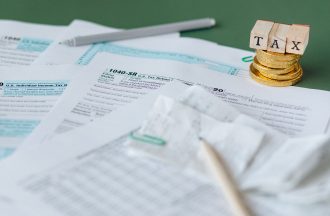
It is no secret that the economy is not in a great place right now – even with the stock market soaring. The combination of the economic shock from the lockdowns and the ongoing uncertainty from the continued march of the COVID pandemic has sent shock waves through communities throughout the county.
While many small business owners have tried to keep going during this time, many observers believe mounting pressures will force many into bankruptcy in the coming months. The result could be a wave of business failures, layoffs, even foreclosures that would put the Great Recession to shame.
What if you are considering filing bankruptcy? The process can be nerve-wracking even during the best of times, let alone when the courts are operating on reduced schedules. Further complicating matters is the matter of how a bankruptcy will impact your taxes. As such, here are some tips on how you can deduct your bankruptcy fees from your taxes.
Rule of Thumb Regarding Legal Expenses
According to IRS rules, taxpayers can deduct legal expenses if they meet specific requirements. In general terms, you can deduct fees paid in the connection of the delivering your business’ product or service or if the charges are connected to the preparation, determination, collection, or the refund of taxes. This would include fees paid to an attorney to represent you during an audit.
Practical Situations
However, the rules state that you cannot deduct legal fees tied to the non-revenue, or non-tax-related, activities. This could include criminal defense or personal injury cases. You might think this would exclude fees related to bankruptcy filings, but there is a special exemption just for that as some of the legal expenses incurred during this process can be deducted.
For example, in a Chapter 7 bankruptcy, if the bankruptcy estate’s gross income hits the taxable threshold level, the trustee will file a separate tax return. In this process, the legal fees tied to the trustee’s operations are tax-deductible. However, you can only deduct these expenses on the estate’s tax returns, not your income tax returns.
One thing you will want to keep in mind is that the fees you pay for legal advice regarding your bankruptcy are not tax-deductible. According to the Jacobson, Julius & Harshberger Law Firm in Harrisburg, PA, this is one reason why you should “request a free, no-pressure consultation with an attorney” before deciding on who will best represent you.
This sort of due diligence will help you to find the law firm which will best work for you without, and since the initial consultation is at no charge, you won’t have to worry about any tax implications.
One way to garner a tax deduction is to get tax advice. Remember that bankruptcy is more than just reorganizing your debts, there are also tax implications, and, in some ways, it might be advantageous to use the same firm handling your bankruptcy for tax planning or preparation.
Doing so will reduce some of the duplication of efforts during the process, and depending on how the advice is billed, it can help you to get a tax benefit from the legal advice you are seeking. Just remember that most law firms will itemize the time spent on your case, and what you want to ensure is that the tax advice is cataloged correctly.
Getting Your Deduction
To get your deduction for legal fees paid, you will need to use the miscellaneous deduction on Line 23 of Schedule A. Just make sure that you have everything documented just in case you get audited. While your audit risk is usually quite low, you do not want to take anything for granted.
Remember, if you are looking to maximize the amount you can deduct, then you will want to make sure your lawyers are not only giving you bankruptcy advice but also tax advice. Also, do not take for granted that your itemized bill is always correct. Ask questions, as there might be a chance to reclassify some of the charges depending on who is doing the work.
While your lawyers cannot do anything which would breach their professional rules, time tracking can be an imperfect science, so you want sure you are maximizing your tax benefit.
We are living in uncertain times, and if the burden of keeping your small business open, or personal finances afloat is getting too heavy, then bankruptcy might be the only option remaining. Do not fall into a debt trap; use the processes put in place to help you take control of your life.








